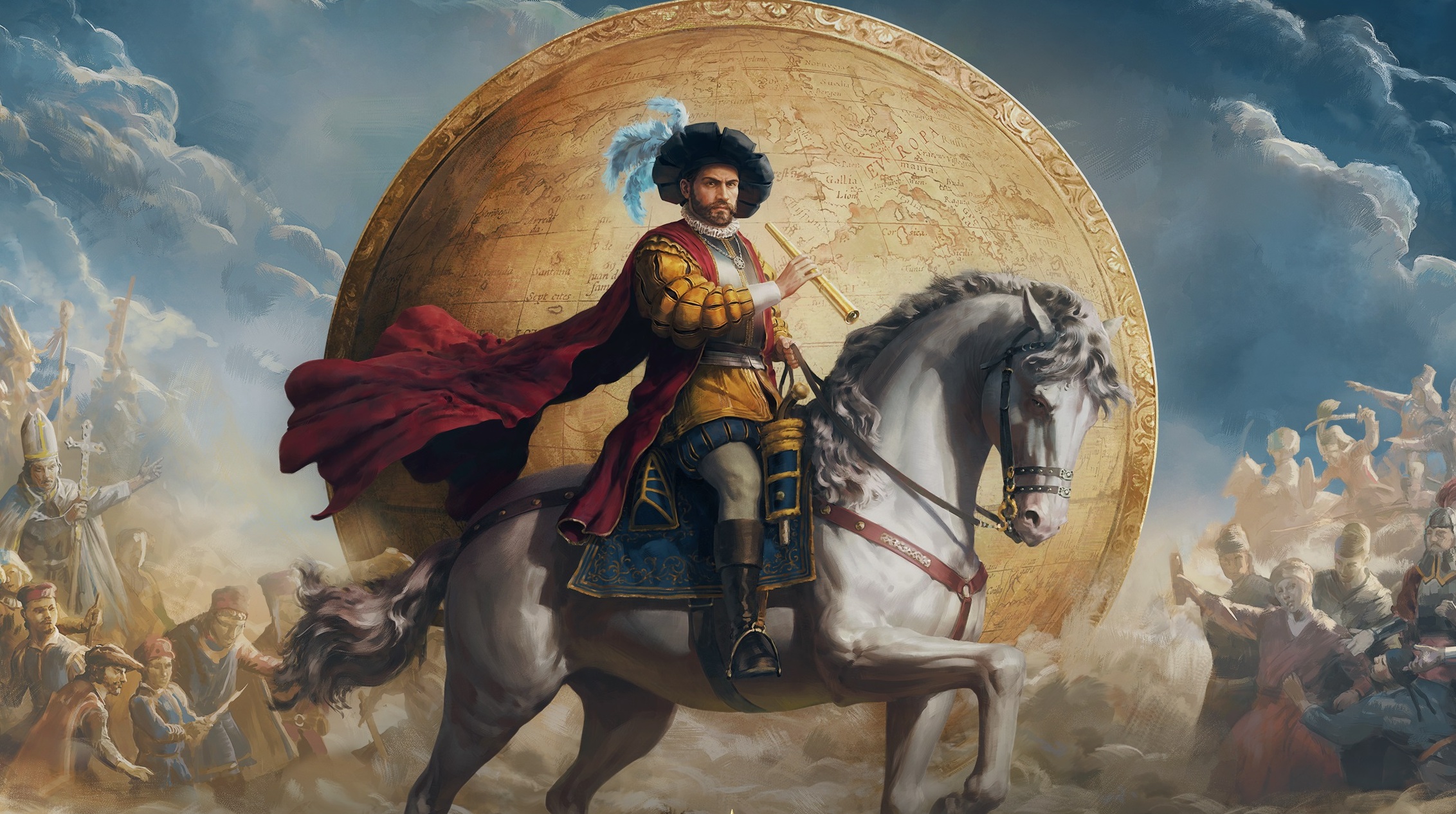
Paradox Tinto released a whopping 62 dev diaries before officially revealing EU5.
It was pretty obvious, right from the first dev diary published on February 24, 2024 that Paradox Tinto was working on Europa Universalis 5. The studio had been set up to maintain 2013’s Europa Universalis 4, and was headed by EU director Johan Andersson. Everything it showed us from Project Caesar screamed Europa Universalis 5.
And Andersson had been extremely eager to get started. “I wanted to make a new game,” he told me earlier this year, in Tinto’s unassuming suburban office, located in Sitges, Spain. “I’d learned so much from Imperator, and the post-launch there and figuring out what I want to do when I’m doing the next game. I’d been trying out ideas in my head and then realised, OK, I can make an EU sequel. We need to make an EU sequel.”
Imperator: Rome sold well at launch and received a lot of glowing reviews, including from me. In my Imperator: Rome review, I gave it 92%, calling it “Huge, inventive and the reason I’m sleep deprived.” It was a game of diminishing returns, though, and Paradox’s perfectionist fanbase wasn’t as impressed.
Player reviews, then, were less favourable, and while Andersson and his team have managed to turn things around (recent Steam reviews are “Very Positive”), it’s probably never going to garner the kind of love that Crusader Kings or Europa Universalis receives. But Imperator was important stepping stone—one that led Paradox Tinto to EU5.
There are two major things Andersson learned from designing and refining Imperator, which he’s now applying to EU5. “Less board game things, is one thing,” he said. This is why the concept of ‘mana’ has been largely tossed out.
You’ve got resources, of course, and lots of numbers to reflect things like your nation’s stability, but it’s mostly moved away from the more abstract concepts of power. People—pops, estates, soldiers, advisors, cabinet ministers—take centre stage. Dynamic, sometimes confounding, this human element serves as both the expression of your power and the thing you’re trying to control.
I can make an EU sequel. We need to make an EU sequel.
Johan Andersson, Paradox Tinto studio manager
But there’s another thing that’s proved to be even more critical, and why we’ve spent the last year being able to read detailed, insightful explanations of EU5’s systems in unexpectedly granular detail, long before Paradox even confirmed what game it was making.
“The most important [lesson] is: involve the community more and listen more to the community,” he said. “We did a lot of quantitative and qualitative user research at the start, like checking what they wanted by doing big surveys, then doing interviews with part of the community and figuring out what they wanted. That aligned pretty much with the vision I had of a deeper, economical game and more peace time activities.”
If Andersson had it his way, the reveal would have happened a bit sooner, in fact. “I wanted to do it a little bit earlier, but marketing people tend to get panicky when you start talking.” This also explains why, despite how obvious it was that Paradox Tinto was working on EU5, the team couldn’t quite go so far as to confirm that.
And this isn’t lip service. Each dev diary has generated so much feedback, and the team has been quick to respond and, in a bunch of cases, make swift changes. There have been some occasions where Andersson would reveal a mechanic, and then a week or two later tell the community that it’s already been changed based on their response.
One example is the change in the relationship between pops, the people living in your provinces, and the estates, which are broader groups of people who can influence the nation.
“We used to have an estate to pop direct connection,” Andersson said. “We only had four estates and five pop types. It was like one-to-one links. Now we have multiple adaptive estates because of community feedback. We also have more variation in pop types with, like, labourers and soldiers and tribesmen. So it makes them a more fluid and more natural mechanic.”
As I said in my Europa Universalis 5 preview, it does come across as an uncompromising game—one that feels like it benefits from a strong vision. But it’s simultaneously a game that’s being developed specifically for Paradox’s community of hardcore grand strategy enthusiasts, and their influence on it is already obvious.



